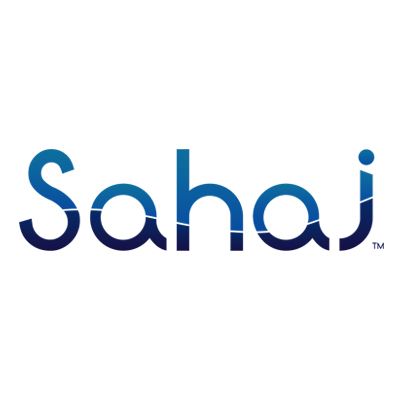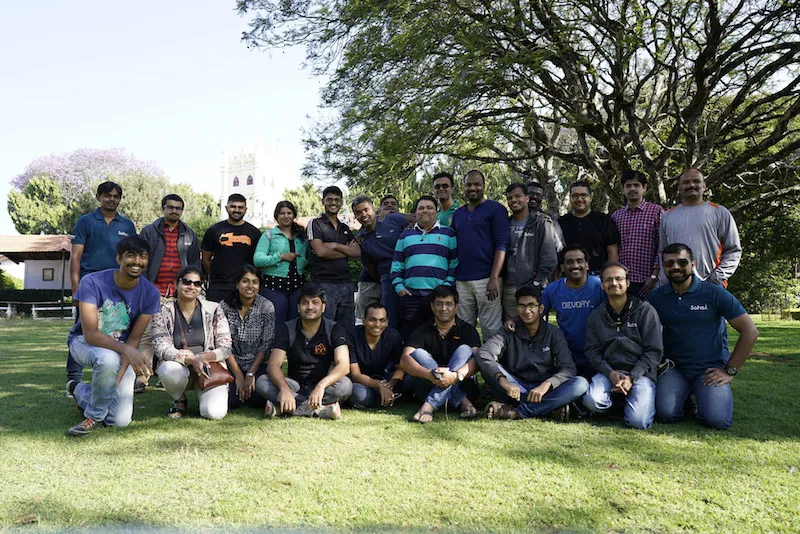
Sahaj
View Brand PublisherSahaj celebrates transparency, individuality and its greatest asset – its people
In July 2015, the co-founders and directors of Sahaj Software Solutions were preparing for an important presentation. They were to showcase their past work experience, competencies, current roles, and what new challenges they were ready to take on to a room filled with everyone who worked at the company. By the end of the presentation, their co-workers (there are no ‘employees’ at Sahaj, only ‘members’) would jointly decide what each of them would draw as a salary. And the details would be shared on their Intranet, for anyone in the company to see. This unique approach and transparency is what the three-year-old company believes sets it apart from the rest of the pack in the startup world.
Sahaj, by definition, means simplicity. And that is what each of the founders, who had all walked out of high-flying IT jobs, set out to create in their new venture. An environment that was simple, non-hierarchical and open, they believed, would be the ideal breeding ground for solutions that would solve the client’s challenges, and be easily sustained. And in April 2014, that vision became a reality.
“The five of us (including Akash Agarwal, Sunder Malyandi, Rohit Bansal and Nitin Dhall) had just left Thoughtworks. We had two options–to return to corporate jobs or do something really disruptive,” says Akash Agarwal, Co-founder and Director at Sahaj.
The quintet, each of whom has 20-25 years of experience, knew that an IT company’s greatest asset is its people, as it was a knowledge-based industry. Agarwal says that through his career, he had noticed that just as the manufacturing sector exploits resources, IT companies exploit the human brain for maximum profit, and that is what they wanted to change.

A simpler solution
“The services industry was doing very well in the 80s and the 90s, but over time, it degenerated into a moneymaking operation. Today, if a client goes to a service provider, they know that the provider will build a complicated solution that squeezes as much money as possible out of the client,” says Akash. The solution consultants at Sahaj wanted to challenge this notion as well. They decided they would solve a problem in the simplest way possible, so that the client could sustain and maintain it easily. And that is the bedrock on which Sahaj is founded.
“When we started, 40 people were supposed to join us. Eight of our clients also said they would join us. But on day one, apart from five people, everyone, even the clients were a no show. We were literally on ground zero when we started on 16 April 2014,” says Akash.
Among them was Shwetha Thammaiah. “I joined on day one. I had taken a break in my career and one of the things that brought me here was that I wasn’t tied down by expectations. No specific goals were cut out. They told me that they expected me to do everything. It seemed very promising. Over the three years, I have been challenged, but also got all the support I need,” she says.
The team decided they would start by doing one project right and take it from there. They did one project in Australia and one in the UK, and sure enough word of mouth ensured that more projects were coming in.
“When we meet clients, we are completely honest with them about what is possible. We don’t wait till the last minute to give bad news, and count success in terms of how fast we can simply and successfully create a solution. We are a premium disruptive company and are not going to achieve the scale that others have. The only way we can create an impact is to create a solution and move on to the next. So far, we have done 40-42 projects with just 50 people,” says Akash.
Today, between 60-65 percent of the projects Sahaj takes on are nascent product startups. “The degree of the nascency has been that we have had people who thought of an idea the night before walk in. In four hours, we give them a path to production that will complete in three months with a team of two or three people. This is what we take pride in,” says Manish Pillewar, a solutions consultant at Sahaj.
Akash draws parallels with a pit crew in an F1 race. “We fix things efficiently in the shortest possible time with extreme precision.” He gives the example of a mobile banking client, who was working on a solution with an 80-people team for three years. Sahaj deployed four people and devised a solution in six months.
Akash says that there is no magic involved in these timelines. He says that it’s the same people who were working elsewhere that are now thriving in this environment. “It makes you think very differently. I am amazed at the level of ownership. I walked into the office one day to find a colleague with over 20 years of experience standing on a chair and putting up curtains,” he says.
Their biggest assets
As the co-founders started to build the team, they soon realised that they were inadvertently treading the same path they had tried so hard to steer clear of. That was when they introduced their first big disruption. One of the solution consultants, Rohit Maurya asked the co-founders, “Why are we hiding salaries? You talk about everyone being equal partners in Sahaj, and yet you can see everyone’s salary but we can’t.” Akash says that for the first time in his 18-year career he questioned why salaries were hidden and why an HR department was needed to decide compensations. “We came to the conclusion that salaries were a hidden means of control. It creates a boss and junior setup. That made us decide to be open about the salaries. Everyone’s salary, including the director’s, is on the Intranet today,” he says.
Today, reviews and salary revisions across Sahaj are decided by everyone working there together. Even the director’s salary review last week was done in this manner and not by the board.
Rohit also credits this open culture with his decision to join Sahaj. “I was associated with Sahaj even before the name was decided. The main reason I joined is the people. Also, it’s a place where I can experiment and not worry about being blamed if something goes wrong. I don’t like boundaries, only guidelines,” he says.
The second big disruption was with members taking leave. Although they started by allocating the mandatory 24 days a year, all that changed when a colleague questioned whether the same rule applied to the co-founders. The fact that it didn’t made the co-founders decide to remove all caps on leave. “There are people who have gone on paid leave for six months to a year when they needed to, but no one has ever exploited this provision. “People take leave when they want, but are accountable for their work,” says Akash.
The third disruption that Sahaj has witnessed is the lack of set boundaries on roles. “Creativity cannot be boxed. We don’t say that developers can only be developers and not contribute to sales, etc. If you have an idea, we encourage you to come forward. And if you are talking about this kind of disruption, why have grades and roles? So, we abolished that as well. So, we have no grades and roles, and everybody is a solutions consultant and everyone does everything. We don’t have experts, we don’t have specialists, we have people who think about everything,” says Akash.
“We believe Sahaj is a platform where people experience the IT system from end to end. We believe that people should find out what they are good at. You may be good at one thing, but how do you know you are not capable of anything else? We have had multiple success stories. Some of our hardcore dev ops people are also some of the best sales people we have,” he adds.
It is this culture of openness that brought Priyank Gupta to Sahaj from Pune. “I joined three years ago because I was looking for a setup that was smaller than the small set ups I had worked in. I knew most of the founders and there was a personal connect. Today, I enjoy the sense of freedom that I have. You get support for your passions. I can run things in my own style and choose what I want to upskill on,” he says.
The people at Sahaj don’t see their work as a job. “One of the first things I tell people is the day Sahaj becomes a job, please leave. Send us an email and you can leave. Two people have done that already. And we settled then and there. We believe that the kind of passion that we are trying to create cannot happen in a traditional employer-employee construct. Everyone at Sahaj is a shareholder, not an employee, and everyone holds a share in the profit and everyone is a CEO. There are people who have got 3x, 4x offers, but they stayed on. We never offered them more money to stay. They stayed because they wanted to,” says Akash.
Sahaj aims to redefine the highest value-highest rate quadrant on the value versus rate axis in the services space. “We have the right people to move in that direction. So far, the path has been linear. But our competition is not outside, it’s from inside. We have to be better tomorrow than we are today. And all that will be possible because people here believe in themselves,” he adds.







